The Gift of South Dakota
Subscriptions to South Dakota Magazine make great gifts!
Subscribe today — 1 year (6 issues) is just $29!
Grace Balloch’s Books
Jul 2, 2014
|
As a high school student I used to stop by Spearfish’s Grace Balloch Memorial Library some days after class. I’d read a literature assignment, or work on a history paper, and sometimes check out a book for a report. It always ran through my mind: this is a quaint and appropriate name for a library. Grace Balloch. What kind of woman would earn the honor of a namesake library? I imagined a bespectacled lady, white hair in a bun, her clothes smelling a bit musty like vintage volumes, and whose whole world revolved around those classic books. |
Which should tell you that I didn’t have any great capacity for original thinking at age 16 or 17, believed in certain stereotypes, and wasn’t driven to research the truth behind local history.
But it’s never too late to reform. Forty years later, after spending time with Grace’s handwritten letters, photos, and mementos, I’ve discovered a remarkable woman who lived a life of adventure, always certain of her own principles and high standards. She went to war at age 40. Late in life she presented Spearfish an offer it couldn’t refuse.
Grace Balloch wore lots of professional hats, but had someone asked who she was in her heart, there’s little doubt she would have answered “teacher.” There are still a handful of Spearfish people who recall her as a local college English professor and registrar long ago. In Grace’s thinking education meant more than presenting information or guiding students toward it. It also meant encouraging young people to believe themselves worthy and then helping them find necessary resources — including financial ones.
Darleen Young describes assistance her husband, Don Young, got from Grace when as a college student he was hospitalized for eight weeks with typhoid, “leaving him flat broke with a horrendous bill.” The late Evelyn Heinbaugh, one of Grace’s students and longtime publisher of Spearfish’s weekly newspaper, always admired her teacher’s knowledge, patience, sincerity and love of life. “Mrs. Balloch had courage that was self-sacrificing,” Evelyn wrote.
Born Grace Herr Franz in Pennsylvania in 1878, the future teacher graduated from Millersville State Normal School in that state. Much like the college where Grace would teach in South Dakota, Millersville’s original mission was preparing educators and it later evolved into a more diversified state university. Shortly after graduation she was running her own private school just outside Washington, D.C., in Montgomery County, Maryland. There she met Archibald Balloch, geologist and cattle buyer, and Grace’s life changed dramatically. The couple married in 1902 and decided they should relocate out West where the cattle industry flourished — St. Louis and later Chicago.
Grace worked as a librarian at the University of Chicago and taught at Bloom Township High School in Chicago Heights, where she won a reputation among students as a powerful mentor. She took special interest in pupils needing encouragement in hard times, as was the case with 16-year-old Walter Hoeppner in 1916. His mother died during surgery that year. He later recalled, “I am convinced her death was due to incompetence of the surgeon. … This was one factor that persuaded me to study medicine.” Walter had no money for higher education, but Grace helped him figure out ways to win scholarships and work his way through school at the University of Chicago and its affiliate, Rush Medical College. It’s almost certain the Ballochs paid some of his fees, as well. Walter went on to enjoy a long medical career in the Chicago area and would always consider Grace his foster mother.
As Walter wondered whether a career in medicine might be within his reach, Americans wondered whether Walter’s generation would fight in the World War then raging in Europe and other regions. In April 1917, President Woodrow Wilson announced the United States would, indeed, send troops abroad. In France they would face some of the harshest conditions in wartime history, encountering poison gases fashioned into weaponry, and fighting from trenches where disease killed just as ruthlessly as German bullets.
Grace told her husband she was sailing to France to support American boys in the trenches. She knew that the YMCA needed volunteers to staff canteens and “huts” near the front lines. These were places of shelter and refreshment, yet YMCA documents make clear that it saw its mission in France as much more than respite. Soldiers needed contact with people of strong character who could help them make sense of a world where they regularly watched friends die, and where it was easy to stop believing in God and the better instincts of humanity. In late summer, 1918, Grace boarded a transport ship and finally saw the French coastline after a voyage through remarkably stormy weather. Archibald, meanwhile, was off to Virginia, where he supervised loading military equipment aboard ships.
Grace later recalled her time in the war zone. “It was easy to keep the boys’ morale up during the fighting. They knew what they wanted, what they were fighting for, and that the sooner it was over they could return home. But after the war the let-down was terrific.” The Armistice ending combat was signed Nov. 11, 1918, but soldiers soon learned there was plenty of mop-up work for them in Europe.
Grace’s happiest day in France came in 1919 when she reunited with her foster son, Walter, a soldier serving as a medic. She came to love France and its people and even opened a bank account there, certain she and Archibald would return to visit.
Did Grace and other YMCA volunteers make a difference in France? Back home, some Americans scoffed at the program. But today, in Spearfish, yellowed letters that Grace kept the rest of her life attest that for some soldiers her presence was perhaps life changing.
“I sure am proud to have two friends such as you and Miss LeRoy, and being with you is when I feel my best,” wrote soldier Tom Johnson from a post at a French stone quarry, three days before Christmas, 1918. “I assure you I will try and return your many good traits.”
Grace spent that Christmas at a military hospital, writing letters from wounded soldiers to loved ones in the States. Reminding soldiers to write home, it seems, was something she repeated like a mantra.
She kept a copy of this poem by an anonymous soldier who, among other things, appreciated those reminders to write:
When he wants to write a letter
(And you know that he had better)
To his mother, or his father, or the girl,
Or he’s feeling sort of lonely
And the thing he craves is only
An oasis in the racket and the whirl
Or he yearns for conversation
Or the glad exhilaration
Of a dish of ice-cream or piece of custard pie,
He will hurry helter-skelter
To the YMCA shelter
Hereinafter to be spoken as the “Y.”
By spring Grace had completed her YMCA work and applied to work a few months more in France, helping noted historian Ray Stannard Baker document the war. A close friend of Woodrow Wilson, Baker had been the President’s eyes and ears in wartime France and his press secretary when the Treaty of Versailles was signed. Grace was selected as part of Baker’s team, and there’s no doubt that their extensive work contributed to Baker winning the Pulitzer Prize for an eight-volume biography of President Wilson.
Finally it was time for Grace to return to America, and the soldiers she trained to write letters continued writing her for years. But their letters found Grace not in Chicago, but the Black Hills. Photos dated 1920 show Grace and Archibald with horses on a ranch near Custer. At the same time Archibald was helping build the first roads through Custer State Park. In 1923 Grace taught summer English classes at Spearfish Normal School (today’s Black Hills State University) and was offered a full time position that fall. Spearfish would be the Ballochs’ home for the rest of their lives.
They never made that trip to France. Archibald died in 1934. Five years after that another world war engulfed Europe. In 1940 Grace learned of Paris falling to the Nazis. They even seized the French bank where she had deposited $150 during World War I in hopes of returning. She told a reporter that most French citizens valued freedom and their own form of government and would “gladly die for their cause. It is horrible that a few ambitious traitors and blood-thirsty dictators can bring so much misery and destruction to the backbone of the French nation.”
Grace was in no condition to participate overseas in the new war. She learned she was terminally ill at age 63, and she set her sights on solving a local problem. Spearfish, her adopted hometown, had no public library and Grace decided to nudge the community towards developing one. Not that Spearfish was anti-book. It claimed a history of literary clubs, book exchange groups, and a short-lived Works Progress Administration library service in the 1930s. But as a college community Spearfish could sometimes sit back and let its state-supported school provide certain services, rather than funding those services itself. Black Hills State was happy to let Spearfish citizens use its library, especially after they helped re-stock it following a 1925 fire. Sometimes the college even loaned books to a Main Street store for checkout.
In Grace’s mind that was a far cry from a public library, and she said she would donate her personal collection of 1,500 volumes. Grace wrote in her will: “To the City of Spearfish, to be used as a nucleus for a city library, I give and bequeath all my books, and I request that a committee be appointed by the Mayor of the City of Spearfish to take charge of this bequest.” The will further left the Balloch home on Main Street to Grace’s sister, Anna, and after Anna’s death the property would go to the city for constructing a library building.
Grace died in November 1944, happy to know that France had been liberated from the Nazis. Certainly she understood that her gift to Spearfish would be somewhat difficult for city leaders, who had no space for her books and no budget for operations. Initially the city council declined the donation. But as was true for Grace everywhere, she had touched Spearfish lives profoundly and left behind loyal friends. In 1945 voters overwhelmingly demanded that city funds be directed toward a library to be called Grace Balloch Memorial.
It’s hard to imagine a more modest library than the first version to bear Grace’s name. It was a 10-foot by 30-foot room in Tom and Margaret Cutter’s Spearfish Hotel. In 1962 the books were carted up the block to rooms in the Sullivan Insurance building. There was no room for expansion or programming, but library patrons knew better days were coming. The city had acquired Grace’s home site after her sister’s death in 1959, and readers who kept a library book a few days too long at least had the satisfaction of knowing all fines went into a construction fund.
A sparkling new library opened in June 1971. Presiding at the building dedication was Mayor Don Young, the man Grace helped back to his feet as he recovered from typhoid 35 years earlier. Certainly those who attended the dedication believed the building would serve many generations. But Spearfish’s population boomed the next two decades and the library’s collection kept pace with that growth, outstripping the space. In 1996 the library moved a fourth time into the ground floor of Spearfish’s new municipal services building, a beautifully designed structure that is certainly beyond anything even the well-traveled Grace Balloch could have imagined.
Amber Wilde, library director since 2008, notes that Walter Hoeppner’s family still makes an annual contribution to the library fund. She is impressed by the wide range of Spearfish area residents making use of the library regularly. There are story times for children, programming for adults, and of course computer access to information centers around the globe. There are more than 71,000 books, audiobooks, tapes, and other items catalogued.
Readers can still find some of Grace’s own 1,500 volumes on the shelves, identifiable by her personal bookplate. It depicts a child, looking at a bookshelf, as if awaiting someone’s help in selecting something to read.
Editor’s Note: This story is revised from the November/December 2010 issue of South Dakota Magazine. To order a copy or to subscribe, call (800) 456-5117.

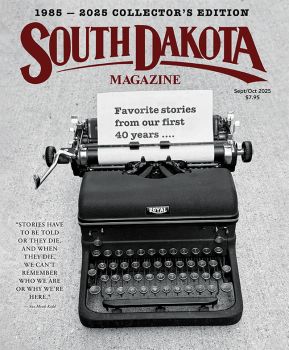
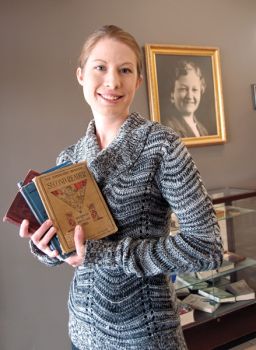
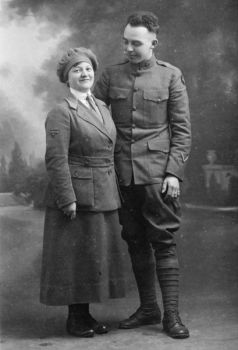
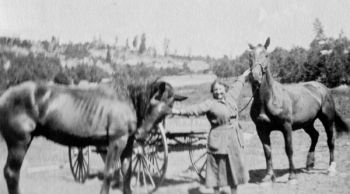
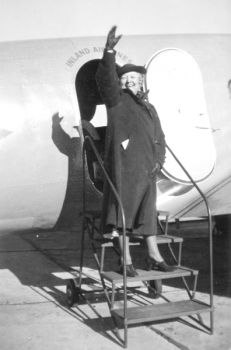

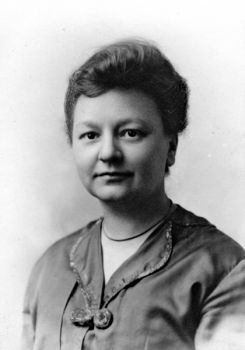
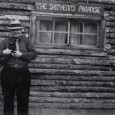





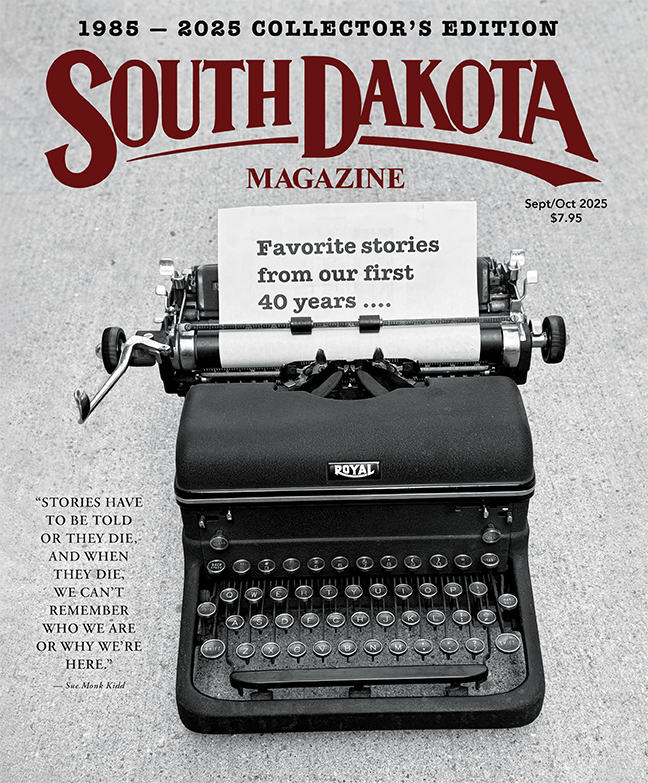

Comments